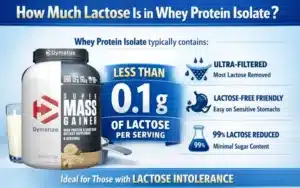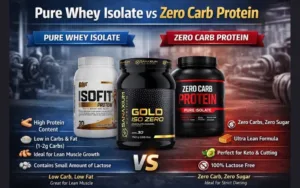No products in the cart.
Return To ShopNutrition Supplements: Enhance Your Health & Wellness
In an era where dietary habits often fall short of optimal nutritional standards, nutritional supplements have emerged as pivotal allies in the pursuit of comprehensive health and wellness.
These concentrated sources of essential nutrients bridge the gaps left by modern lifestyles, offering multifaceted benefits that extend beyond mere sustenance.
Bridging Nutrient Gaps in Modern Diets
Contemporary diets, laden with processed foods and lacking in diversity, frequently fail to provide all the necessary vitamins and minerals required for optimal bodily functions.
Nutritional supplements serve as a compensatory mechanism, ensuring that individuals receive adequate levels of nutrients such as vitamin D, omega-3 fatty acids, and magnesium.
By supplementing these deficiencies, individuals can maintain physiological equilibrium and prevent the onset of deficiencies-related ailments.
Enhancing Immune Function and Resilience
A robust immune system is the cornerstone of health, safeguarding the body against pathogens and infections.
- Supplements like vitamin C, zinc, and elderberry extract have been shown to bolster immune defenses. These nutrients act as immunomodulators, enhancing the production and efficacy of immune cells.
- Regular supplementation can lead to increased resistance to common illnesses and a swiffer recovery process when infections occur.
Boosting Cognitive Performance and Mental Clarity
Cognitive acuity and mental clarity are increasingly recognized as vital components of overall wellness.
Supplements such as omega-3 fatty acids, B-vitamins, and nootropics like L-theanine and bacopa monnieri contribute to enhanced brain function. These substances facilitate neurotransmitter synthesis, promote neuroplasticity, and protect against oxidative stress, thereby supporting memory, focus, and overall cognitive performance.
Promoting Cardiovascular Health and Vitality
Cardiovascular health is integral to longevity and vitality. Nutritional supplements like coenzyme Q10, magnesium, and garlic extract play significant roles in maintaining heart health.
Coenzyme Q10 aids in cellular energy production within cardiac cells, magnesium regulates blood pressure and muscle function, and garlic extract possesses vasodilatory properties that improve blood flow. Together, these supplements contribute to reduced risk of hypertension, atherosclerosis, and other cardiovascular diseases.
Supporting Metabolic Processes and Energy Levels
Metabolic efficiency directly impacts energy levels and overall vitality. Supplements such as B-complex vitamins, chromium, and alpha-lipoic acid enhance metabolic pathways, facilitating the conversion of food into usable energy.
Additionally, adaptogens like ashwagandha and rhodiola rosea help the body manage stress, which can otherwise impede metabolic functions and lead to fatigue.
Aiding in Recovery and Physical Performance
For individuals engaged in physical activities, recovery and performance are paramount.
- Branched-chain amino acids (BCAAs), creatine, and beta-alanine are prominent supplements that aid in muscle recovery, reduce exercise-induced fatigue, and enhance muscular endurance.
- These compounds support protein synthesis, replenish energy stores, and mitigate the accumulation of lactic acid, thereby optimizing athletic performance and reducing downtime.
- Nutritional supplements serve as concentrated reservoirs of these essential elements, bridging dietary gaps and enhancing physiological functions.
Essential Nutrients in Dietary Supplements
Dietary supplements have become indispensable tools, providing concentrated sources of vitamins, minerals, proteins, amino acids, creatine, vegan proteins, and carbohydrates.
Vitamins: The Vital Micronutrients
Vitamins are organic compounds indispensable for myriad biochemical processes.
- Fat-soluble vitamins, such as A, D, E, and K, play roles in vision, bone health, antioxidant defense, and blood coagulation, respectively.
- Water-soluble vitamins, including the B-complex and vitamin C, are crucial for energy metabolism, red blood cell formation, and immune function.
Supplements ensure adequate intake, especially when dietary sources are insufficient, thereby preventing deficiencies that can lead to conditions like scurvy, rickets, or anemia.
Minerals: Building Blocks of Health
Minerals, inorganic elements, are integral to structural and regulatory functions within the body. Calcium and phosphorus fortify bone density, while magnesium is pivotal for muscle function and nerve transmission.
Iron facilitates oxygen transport in hemoglobin, and zinc supports enzymatic reactions and immune responses. Supplementation with minerals can address deficiencies, enhance physiological resilience, and contribute to overall homeostasis.
Proteins and Vegan Proteins: Foundations of Muscular Health
Proteins, composed of amino acids, are the structural and functional molecules in cells. They are essential for muscle repair, enzyme production, and hormone regulation.
- Traditional protein supplements, often derived from whey or casein, provide complete amino acid profiles necessary for muscle synthesis and recovery.
- Vegan protein alternatives, sourced from peas, hemp, or brown rice, offer plant-based options that cater to dietary preferences without compromising on essential amino acid intake.
These supplements support muscle maintenance, especially in populations with increased physical demands or restricted dietary sources.
Amino Acids: The Building Blocks of Proteins
Amino acids, the monomers of proteins, are categorized into essential and non-essential types. Essential amino acids cannot be synthesized by the body and must be obtained through diet or supplementation.
Branched-chain amino acids (BCAAs) like leucine, isoleucine, and valine are particularly significant for muscle protein synthesis and reducing exercise-induced muscle damage. Supplementing with amino acids enhances recovery, promotes muscle growth, and supports metabolic functions.
Creatine: Enhancing Energy and Performance
- Creatine is a nitrogenous organic acid that plays a critical role in energy metabolism, particularly within muscle cells.
- It facilitates the rapid regeneration of adenosine triphosphate (ATP), the primary energy currency during high-intensity, short-duration exercises.
- Supplementation with creatine monohydrate has been extensively studied and is proven to enhance strength, increase lean muscle mass, and improve athletic performance.
- Additionally, creatine exhibits neuroprotective properties, contributing to cognitive health.
Carbohydrates: The Primary Energy Source
Carbohydrates are the body’s foremost source of energy, fueling both aerobic and anaerobic activities. They are categorized into simple sugars and complex carbohydrates, with the latter providing sustained energy release.
In supplement form, carbohydrates are often consumed as powders or gels to replenish glycogen stores during prolonged physical activity.
Adequate carbohydrate intake through supplementation supports endurance, prevents fatigue, and facilitates recovery post-exercise.
Integrating These Nutrients for Optimal Wellness
A synergistic approach to supplementation involves balancing these nutrients to address individual health goals and physiological demands. For instance, combining protein and amino acid supplements can amplify muscle synthesis, while pairing vitamins and minerals ensures comprehensive metabolic support.
Creatine and carbohydrate supplements can be strategically timed around workouts to maximize energy availability and recovery. Personalizing supplementation regimens based on lifestyle, dietary intake, and specific health objectives is essential for achieving holistic wellness.
Choosing Quality Supplements
Selecting high-quality supplements is crucial to ensure efficacy and safety. Consumers should prioritize products that undergo third-party testing, possess transparent labeling, and contain bioavailable forms of nutrients.
Certifications from reputable organizations, absence of unnecessary additives, and adherence to Good Manufacturing Practices (GMP) are indicators of superior supplement quality.
Potential Risks and Considerations
While nutritional supplements offer numerous benefits, they are not devoid of potential risks. Overconsumption of certain vitamins and minerals can lead to toxicity, and interactions with medications are possible.
Medication Interactions
- Nutritional supplements can interact with prescription medications.
- These interactions may reduce the effectiveness of medications or cause adverse effects.
Pre-existing Health Conditions
- Individuals with pre-existing health conditions should exercise caution when adding supplements.
- Professional guidance helps tailor supplement use to individual health needs.
Monitoring and Dosage Control
- Proper dosage control is essential to prevent adverse effects from overuse.
- Regular monitoring by healthcare professionals can help maintain safe supplement levels.
Conclusion
Nutritional supplements, when judiciously integrated into a balanced diet and healthy lifestyle, can significantly enhance overall health and wellness. They act as essential components in a comprehensive wellness strategy, addressing nutrient deficiencies, supporting immune and cognitive functions, and promoting cardiovascular and metabolic health.
choosing high-quality supplements and adhering to recommended guidelines, individuals can harness their benefits to achieve sustained vitality and well-being.









Add comment